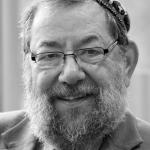About the Book
Neo-Hasidism applies the spiritual insights of the Hasidic masters—God’s presence everywhere, seeking the magnificent within the everyday, doing all things with love and joy, uplifting all of life to become a vehicle of God’s service—to contemporary Judaism, as practiced by men and women who do not live within the strictly bounded world of the Hasidic community.
This first-ever anthology of Neo-Hasidic philosophy brings together the writings of its progenitors: five great twentieth-century European and American Jewish thinkers—Hillel Zeitlin, Martin Buber, Abraham Joshua Heschel, Shlomo Carlebach, and Zalman Schachter-Shalomi—plus a young Arthur Green. The thinkers reflect on the inner life of the individual and their dreams of creating a Neo-Hasidic spiritual community. The editors’ introductions and notes analyze each thinker’s contributions to Neo-Hasidic thought and influence on the movement. Zeitlin and Buber initiated a renewal of Hasidism for the modern world; Heschel’s work is quietly infused with Neo-Hasidic thought; Carlebach and Schachter-Shalomi re-created Neo-Hasidism for American Jews in the 1960s; and Green is the first American-born Jewish thinker fully identified with the movement.
Previously unpublished materials by Carlebach and Schachter-Shalomi include an insider interview with Schachter-Shalomi about his decision to leave Chabad-Lubavitch and embark on his own Neo-Hasidic path.
“A New Hasidism describes the renewal of Jewish life that I and so many of our colleagues have found to be meaningful. It draws us into an important conversation that will enrich our lives and the lives of those we touch as teachers and rabbis.”—Rabbi Laura Geller, CCAR Journal: The Reform Jewish Quarterly
“For more than a hundred years, people in search of religious renewal who are not Hasidic have found inspiration in Hasidism. Now, Arthur Green and Ariel Mayse, both scholars of Hasidism and committed spiritual seekers, have assembled critical texts for the fashioning of neo-Hasidism in the twenty-first century. The result is a landmark contribution to Jewish spirituality.”—David Biale, Emanuel Ringelblum Distinguished Professor of Jewish History at the University of California, Davis, and editor-in-chief of Hasidism: A New History
“A New Hasidism is a treasure for the heart and mind. With this superb two-volume anthology in hand, contemporary seekers and scholars have a broad spectrum of spiritual wisdom with which to contemplate the history and contemporary character of neo-Hasidism. The first volume provides the ‘Roots’ of the modern reinterpretation of Hasidism in Europe and America; the second displays the ‘Branches’ spreading over Jewish life in the United States and Israel in our times. Together they mark a major moment of our Jewish religious renaissance.”—Michael Fishbane, Nathan Cummings Distinguished Service Professor of Jewish Studies at the University of Chicago
“In two sequential volumes, the diamonds of Hasidic spiritual teaching have been skillfully recut and set to offer seekers of all backgrounds entry into a challenging and soul-expanding opportunity. You are invited to enter a multigenerational conversation, deeply engage with the most inspiring teachings of Hasidic and contemporary teachers, build upon these insights, and carry them forward.”—Rabbi Marcia Prager, director and dean of the ALEPH Ordination Program and author of Path of Blessing: Experiencing the Abundance of the Divine
“The impact of neo-Hasidism on contemporary Jewish life cannot be overstated; its influence has penetrated farther and wider than is usually acknowledged. Yet what is neo-Hasidism really—what are its main teachings, and where do those ideas stem from? Here, brought together for the first time, are the essential texts of neo-Hasidism, from forebears like Hillel Zeitlin and Abraham Joshua Heschel, and from recent and contemporary thinkers like Zalman Schachter-Shalomi and Arthur Green. Whatever their own relationship to neo-Hasidism, students of Jewish thought and contemporary religious life cannot afford to miss these volumes. They are a veritable feast for seeker and scholar alike.”—Rabbi Shai Held, president and dean of the Hadar Institute and author of The Heart of Torah: Essays on the Weekly Torah Portion
“Over the past century, a number of creative spirits have reimagined Hasidism—infusing it with new energy, liberating it from its insularity and dynastic power structure, and translating its radical wisdom into a modern idiom. Now, for the first time, one of those creative spirits, together with his brilliant disciple, have chronicled that transformation and assembled its foundational documents (or ‘roots’) along with many of its recent literary ‘branches.’ Dip into these volumes to experience the renewal of Jewish spirituality.”—Daniel Matt, author of The Essential Kabbalah and the annotated translation, The Zohar: Pritzker Edition
“Just when we are in such dire need of old/new tools for truth telling and loving kindness (chesed ve’emet), we receive these wise, passionate, intellectually compelling essays that continue the unfolding of the Neo-Hasidic revolution in our own times. These volumes will open minds, hearts, and even souls.”—Rabbi Lisa Goldstein, executive director of the Institute for Jewish Spirituality
“Green and Mayse have masterfully crafted a living tree of neo-Hasidic worldview and practice spanning the sources of neo-Hasidic thought and their manifestations in contemporary neo-Hasidism. These two wonderfully innovative volumes reveal a creatively alive Judaism informed by a deep legacy.”—Melila Hellner-Eshed, senior research fellow at the Shalom Hartman Institute and author of A River Flows from Eden: The Language of Mystical Experience in the Zohar
“Arthur Green and Ariel Mayse invite us to sit more, read more, think more, and garment more of our blessings. Roots and Branches are two walking sticks with which we can walk this Creation with wonder and humility. Your mind and heart will coil and uncoil as you enter these crevices of love, faith, devotion, and challenge on a journey to the depths of your being.”—Rabbi Reb Mimi Feigelson, Mashpiah Ruchanit (spiritual mentor) and senior lecturer of Talmud and Chassidic Thought at the Schechter Institutes, Jerusalem



